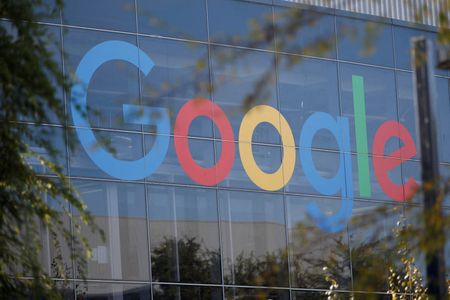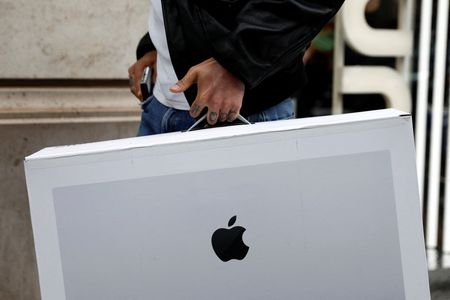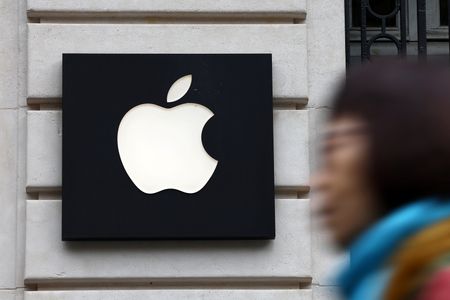BERLIN (Reuters) -Business activity in Germany’s private sector has contracted this month, hurt by service sector woes and trade-related uncertainty, although manufacturers are showing some resilience, a survey showed on Wednesday.
The HCOB German flash composite Purchasing Managers’ Index, compiled by S&P Global, fell to 49.7 in April from 51.3 in March, its lowest point since December and back below the 50.0 threshold that separates growth from contraction.
Analysts polled by Reuters had forecast a reading of 50.4.
The downturn was primarily driven by the service sector, which saw business activity decline at its fastest rate since February 2024, dropping to a reading of 48.8.
Manufacturing output grew for the second consecutive month but at a slower rate, giving a reading of 51.6. New orders also saw slight growth. This was partly attributed to frontloading of orders and stockbuilding. But the overall manufacturing PMI index fell to 48.0 from March’s 48.3.
“You could say Germany’s export-driven growth model is facing some serious challenges, but the U.S. tariff policy has not caused a major slump in manufacturing just yet,” said Cyrus de la Rubia, chief economist at Hamburg Commercial Bank.
Businesses have been reeling from the uncertainty unleashed by President Donald Trump’s announcement of sweeping tariffs on nearly all the United States’ trading partners.
The German government is set to revise down its economic forecasts again later this week, a source told Reuters, forecasting stagnation in 2025 after two consecutive years of contraction.
(Reporting by Miranda Murray and Rachel More; Editing by Hugh Lawson)











